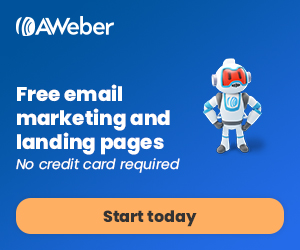1) Be as clear as you can be and answer all questions
Web Designers are not mind readers. During an initial interview, a developer may ask questions that make no sense to you but they are trying to scope the effort. A good developer can advise you and make your concept better but they can’t make it up. Put your ideas into writing so everyone is on the same page. A website designer needs samples of sites that you’ve been attracted to or some sort of wireframe layout to start with. Color choices matter so it helps to have some ideas about the colors that appeal to you, or a feeling you want the website to convey, so the designer can create a palette.
2) Stick to the scope that you have defined
Website development is a process and not an event. When you ask a designer to create a graphic for your page banner, don’t expect them to re-work it infinitely at the same price. If your website developer agrees to port content for you, don’t keep looking for more content and adding it to the list without expecting a push back. If you’ve picked a template that has features you say you like, please don’t “change your mind” and ask the developer to re-engineer the website without offering them additional compensation for their time.
3) Stick to your area of expertise
You hired the developer because you didn’t have the technical expertise to do what you need to have done, right? If you don’t understand why something is a certain way ask, by all means. But phrase your question as a question and avoid words like “usually” or similar terms that have potential to set a confrontational stage. If the developer has a rational explanation for the behavior on the site, appreciate the time they have taken to explain it to you.
4) Price negotiation
Promising future work or referrals that you don’t plan to deliver so you can get a discount on your project is not ethical behavior. Self-employed people rely on referral business or future projects and will sometimes bend their pricing rules for the opportunity to have that. It is dishonest to say that you’ll deliver something you have no plans to deliver. How would you feel if the developer took payment for work they did not do?
5) The Past is Irrelevant
If you feel you’ve been snookered by a developer in the past, don’t continue to remind your current developer about the money you have already spent when there is still development to complete. The work left to do must be done and it is not the developer’s responsibility to ease your budgetary woes for bad decisions you’ve made in the past. If you inform them that something is 90% complete and they let you know it is not, you need to believe them. Also, don’t try to get them to fix a price before they understand what is left to do and expect to pay for the research time. You don’t work for free, do you? Why should a technical expert?
6) Project Initiation
When you inform a website developer you will be using their services on a project, be clear about when you want it to begin. Freelancers may appear to have free time but they really don’t and they accept or reject projects that will inhibit the delivery of yours, or they may even hire staff to work on your project if they feel you have an agreement. If you expect delivery by a certain date and delay the initiation of the project, don’t expect miracles. They schedule their workload just like you schedule your meetings and they factor that workload in when they provide estimates and proposals. If you delay the project, the delivery of your site will also be delayed and this is NOT the developer’s fault.
7) And if the developer is a friend of yours
Don’t continue to ask them “quick questions” that take hours from their working days. If they give of their time freely and it affects commitments they have made to others, the least you can do is offer to buy them a Starbuck’s. The best thing you can do is send them referrals!



